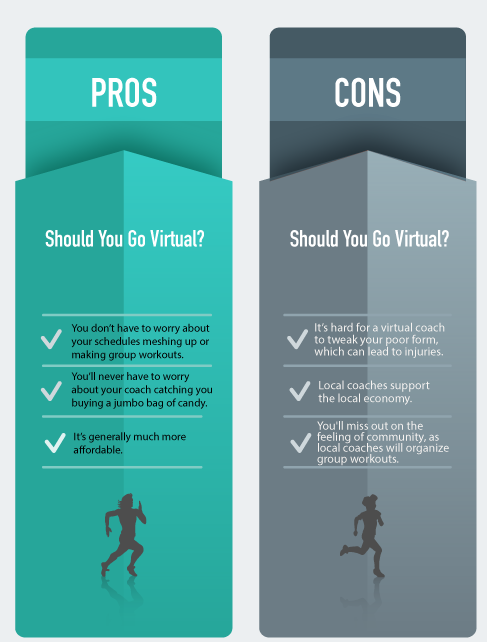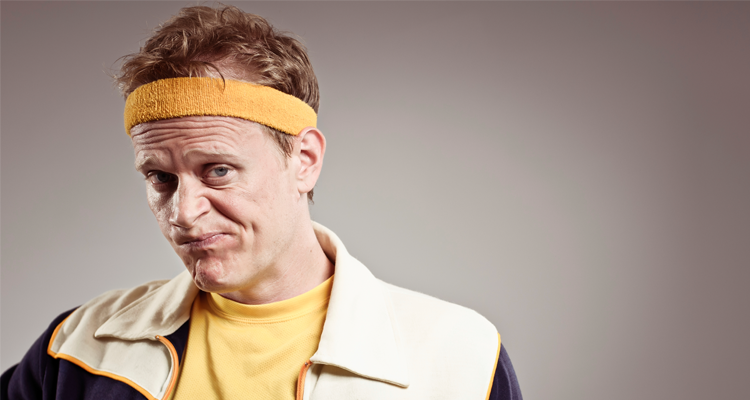A good coach is born, not made. Here’s how to know if you have one.
I rolled up on my brand new bike, my tags-just-removed spandex shorts giving off the distinct smell of newb.
“Hi, I’m here to join the cycling team,” I said.
Six of my fellow university classmates blinked blankly back at me.
I tried a different approach: “Can I ride with you guys?”
Less than three miles from campus, I was struggling. The collegiate cycling team rode together with the precision of a European timepiece. When one pulled off from the front of the pack, another pulled up. Tick-tock, tick-tock.
I, meanwhile, rode three yards behind the group—too nervous to enter their slipstream. But without the aerodynamic boost of their draft I was being left in the dust.
The most experienced rider of the bunch dropped back to ride next to me. If he minded, he didn’t say it. Over the next hour he walked me through the basics of pace lines and how to safely navigate a pack. His name was Aidan, and he’d just become my first-ever coach.
Previously, our collegiate cycling team hadn’t had much structure. It was just a couple of guys riding and occasionally racing together. But when I arrived, it was clear someone needed to be in charge. Aidan, with his years of racing experience, took that role.
Today, Aidan is a successful, professional cycling coach. He works with riders from all over the country—from kids to elite adults. He’s also the standard by which I have judged all other coaches since.
Right about now you’re thinking: Why would I need a coach? I know how to run (or insert your sport here). And isn’t that expensive?
I get it. I’ve spent almost an equal amount of time in my athletic life being coached and flying solo. Clearly you don’t need a coach. At the same time, if you wanted to get better at pottery or learning a language or ballroom dancing you’d likely take some lessons. And thousands of Americans enlist the help of personal trainers each year. Put into this context, hiring a coach doesn’t seem so indulgent.
Before working with Aidan, I don’t think I would have said I needed a coach. I’ve always been a mid pack athlete, not the best, but not the worst. I assumed coaches were for the elite, or at least the people who had a shot at winning hardware. Why would anyone want to coach me?
Most coaches love working with weekend warriors because their results tend to be so drastic. Elites are thrilled to take 10 seconds off their 10-k time but a beginning runner can take minutes off a P.R. with a few coached techniques. And a recreational runner is going to be just as thrilled—if not more so—with that success, even if it doesn’t land them in the medals. What coaches want more than anything else is to see their clients reach their goals. What those actual goals are is less important than you might think.
But what makes a good coach, a good coach? And how do you go about finding one?
Despite the cliché football movies, a coach isn’t necessarily a torturer-in-chief, barking orders and being our accountability police. In fact, with the rise of virtual coaching, some athletes never even meet their coaches face-to-face.
 Online coaching has made coaching more affordable than ever, and you’re no longer relegated to just hiring someone in your local area.
Online coaching has made coaching more affordable than ever, and you’re no longer relegated to just hiring someone in your local area.
What you get from your coach is up to you. Amateur athletes actually stand to gain a lot from coaches, the most important of which is injury prevention.
A coach can help you spot important form issues, or help you assess aches before they become pains. (For me, a few sessions with a local coach totally changed the way I held my arms when I was running—alleviating years of shoulder pain in just a few weeks!)
Beyond that, coaches organize your training so you hit your athletic peak before your biggest events. They can also give tips on what to expect on competition day—and how to deal with the unexpected.
Coaching fees can range from $30 a month to more than $150 a month, depending on the coach’s qualifications and the amount of contact he or she provides. Theoretically, the more you pay the more you should get but that’s not always true. Some of the bargain basement coaches I’ve worked with have been supremely available.
How much you want to be tortured is up to you too. Sure, you can’t go after a really aggressive goal without hard work. But some coaches are going to prescribe more hellish workouts than others. Training philosophies differ—some think you need to suffer more than you’ll suffer on race day, just to make sure you’re prepared. Others think you should do the least amount possible to avoid injury.
There’s a great amount of variation with how much reporting your coach will expect you to do. Some want to know every detail—down to what you eat. Others just want a general rundown of your week. I’ve bristled at coaches who expect too much reporting (it feels tedious to me), but also felt ignored by coaches with a more laissez-faire approach.
A good coach doesn’t just give you workouts and track your progress. He or she gives you confidence. They’re another set of eyes and ears helping you spot problems before they get too big to handle. They’re an unbiased observer, with less emotional attachment to your day-to-day dramas. Their voice is the voice you hear saying yes you can on race day when your body is clearly shouting, no! No I can’t!
Ultimately, the best coach-client relationships often come down to one very unscientific thing: chemistry. Aidan and I had it. I trusted him and liked him (though, not all the time). He understood my motivation and my goals and knew how to tell when I was really tired and just being lazy. We gave each other equal amounts of grief.
A few years after college, when I was thinking of perusing an elite cycling career, I hired a coach with an Olympian bedazzled résumé. He was, by far, the most prestigious coach I’ve ever worked with. But the chemistry wasn’t there. Three months later I called it off. I wasn’t motivated by him and he was frustrated by my lack of progress. A string of bad races showed that we were both wasting our time.
There were no hard feelings though. These are business relationships. A coach worth her salt should want you to be better, to do better—even if that means passing you off to someone else. You’re a client. But with a good coach it never really feels like that. Sure, those mile repeats on your schedule may look like directions to hell and back, but, well, you’ll go through hell and back for a friend.
Want a tailored training program right now? Read on:
Get A Plan And Run With It
Get Race Ready With This 5-Week Swimming Workout
No Gym? No Problem.

